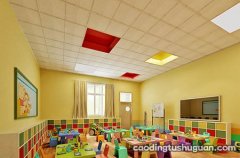主将从现的常用句型有哪些
主将从现的句型主将从现是指在时间状语从句和条件状语从句中,如果主句是一般将来时,从句用一般现在时替代一般将来时.常见的有以下四种情况:一、条件状语从句的主句是一般将来时,那么从句常常用一般现在时
如:When I grow up,I’ll be a nurse and look after patients
我长大后要当一名护士,照顾病人 二、如果主句是祈使句,那么从句通常要用一般现在时
如:Don’t laugh at me when I make a mistake.
我犯错误的时候不要笑话我.三、如果主句是含有情态动词的一般现在时,根据需要从句多用一般现在时
如:You should be quiet when you are in the reading room
在阅览室时应保持安静 四.如果if的条件状语从句遇到变换间接和直接时 ,祈使句应用not to.
如; She said not to close the window
常见的时间状语从句的连词有:as soon as,when,while ,as,until等
主将从现说的是在含有时间状语从句和条件状语从句的主从复合句中,如果主句的时态是一般将来时,那么从句要用一般现在时.
例如:
I will tell him about it when he comes.
If it is fine tomorrow,we will go outing.
如果主句的时态是过去将来时,那么从句要用一般过去时.
例如:He said that he would have another try if he had the chance.
I knew he could help me if he was free the next day.
主要标志有:if unless until when as soon as
用主将从现写句子举20个例子一、如果主句是将来时或表示将来含义时 , 那么条件和时间状语从句多用一般现在时
【主将从现的常用句型有哪些】如: When I grow up, I will be a nurse and look after patients.
我长大后要当一名护士 , 照顾病人 。
二、如果主句是祈使句 , 那么从句通常要用一般现在时
如:Don't laugh at me when I make a mistake.
我犯错误的时候不要笑话我 。
三、如果主句是含有情态动词的一般现在时 , 根据需要从句多用一般现在时
如:You should be quiet when you are in the reading room.
在阅览室时应保持安静 。
四、主将从现说的是在含有时间状语从句和条件状语从句的主从复合句中 , 如果主句的时态是一般将来时 , 那么从句要用一般现在时 。
例如: I will tell him about it when he comes.
If it is fine tomorrow, we will go out.
五、如果主句的时态是过去将来时 , 那么从句要用一般过去时 。 例如:
He said that he would have another try if he had the chance.
I knew he could help me if he was free the next day.
主要标志有:if 、unless 、until、 when 、as soon as等 。
扩展资料
主将从现注意事项
1、用“祈使句 + and / or + 一般将来时的句子”转换 。 如:
If you work hard, you’ll pass the exam easily. → Work hard, and you’ll pass the exam easily. 努力学习 , 你将很容易通过考试 。
If you don’t hurry up, you’ll miss the train. → Hurry up, or you’ll miss the train. 快点儿 , 否则你就赶不上火车了 。
2、用含介词with或without的介词短语转换 。 如:
If there is no water, fish can’t live. → Fish can’t live without water. 离开水 , 鱼不能生存 。
帮忙罗列一下主将从现所有句型主将从现没有现成的句型 , 因为这不是举行问题 , 而是时态问题 。
当你想表达一个将来时的条件句时---比如:‘要是明天下雨 , 我就不去了 。 ’----那么 , 这是必须用主将从现 。 换句话说 , 主将从现就是将来条件句 。
为什么‘从现’呢?因为 , 英语规定 , 从句在这个时候不能使用将来时 , 即使它表示的也是将来的情况 。 像上面的例子 , “明天下雨”肯定是将来情况 , 但是不能用will rain , 只能用rains 。
推荐阅读
- 哪些职业比较有前景,现在什么工作最有前景
- keria:我们赢了,但我们的表现令人失望
- 《崩坏3》主流固伤门派排名,普陀排名第二
- 素食主义者有哪些名人,影响世界的素食名人
- 步步高升女主角有哪些
- 神经检查有哪些项目,胸椎压迫神经表现
- 八牌二图包括哪些
- 九江特产有哪些可以携带的
- 当代文学家有哪些人,中国现代著名文学家有哪些
- 高智商的人有哪些特点和表现,高智商的人晚熟









